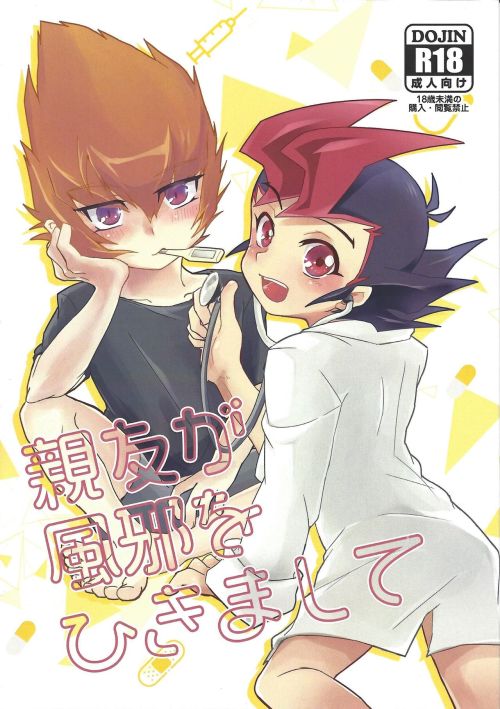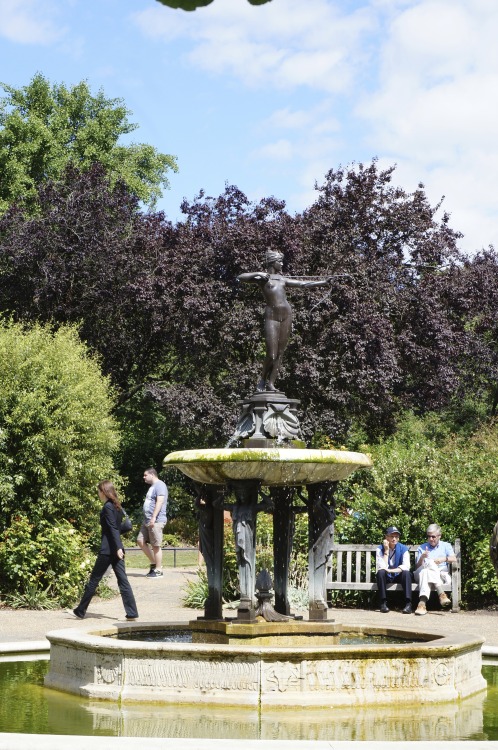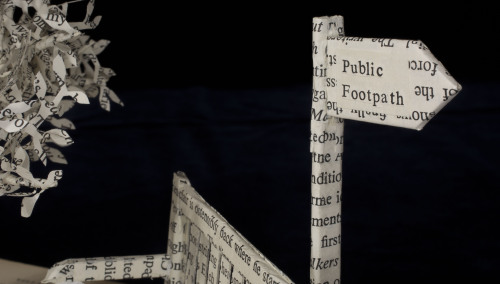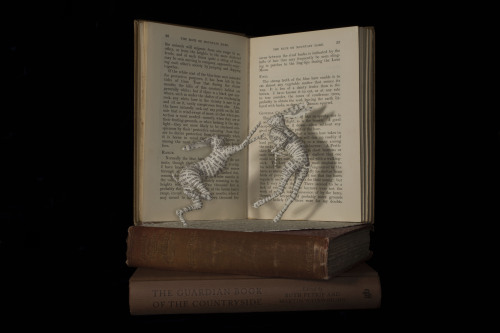#english
Noun
[vis-uh-nij ]
1. a particular neighborhood or district, or the people belonging to it.
Origin:
Vicinage “a particular neighborhood or district” is a fusion of the Latin adjective vīcīnus “nearby” and the English suffix -age, which forms nouns from other parts of speech. Vīcīnus derives from the noun vīcus “village, hamlet,” which is the source of the suffixes -wich and -wick in English place names, such as Greenwich and Brunswick, and comes from the Indo-European root weik- “clan” or “settlement.” This same root is the source of villa, from the Latin word for “country house,” and the Ancient Greek noun oikos “home,” which gives English ecology,economy,parochial, and parish.
“The Island of Mackinac has a circumference of about nine miles, and its shores and vicinage are picturesque and romantic in the highest degree.”
- T. ADDISON RICHARDS, APPLETONS’ ILLUSTRATED HAND-BOOK OF AMERICAN TRAVEL, 1857
Adjective
[ si-raf-ik ]
1. of or relating to seraphim.
2. suggestive of or resembling a seraphim or angel.
Origin:
From the Medieval Latin word seraphicus, dating back to 1625–35.
“Only thirty-seven when he died, his seraphic beauty was never marred by age.”
- JENNIE ELLIS KEYSOR, GREAT ARTISTS, VOL 1.
Adjective
[awr-ee-it, -eyt ]
1. golden or gilded.
Origin:
Aureate “golden or gilded” comes from Latin aureus “golden,” from aurum “gold.” The further etymology of aurum is uncertain, but there are two competing theories—one with a phonological similarity that lacks a semantic resemblance and the other with a semantic similarity that lacks a phonological resemblance. Aurum may be connected to aurōra “dawn,” from a Proto-Indo-European root, ausōs-, of the same meaning, from the root aus- “to shine”; the definition would have shifted from “shining thing” to “gold.” If this theory were true, aurum would be related to Eos, the Greek goddess of the dawn known for her rosy-tipped fingers, as well as to east and Easter, originally a Germanic goddess of springtime. An alternative theory connects aurum to aes “brass, bronze, copper,” from the Proto-Indo-European root ayos- “metal,” which is also the source of English ore. Aureate was first recorded in English in the early 1400s.
“Though Frost maintained that “nothing gold can stay,” some goodness remains, the play concludes. But the poet may have been right after all; whatever small measure of aureate glimmer and substance here is, ultimately, fleeting.”
- MAYA PHILLIPS, “REVIEW: STUCK IN MAINE IN ‘NOTHING GOLD CAN STAY,’” NEW YORK TIMES, OCTOBER 9, 2019
Verb
[ kleyv ]
1.Archaic. simple past tense of cleave.
Origin:
First recorded in 1925–30; Latin American Spanish, Spanish: “keystone,” from Latin clāvis “key”
“He clave the rock in the wilderness, and caused waters to run down like a river.“
- Isabelle Graham, The Power of Faith
Noun
[ kee-ahr-uh-skyoor-oh ]
1. the distribution of light and shade in a picture.
2.Painting. the use of deep variations in and subtle gradations of light and shade, especially to enhance the delineation of character and for general dramatic effect:
Rembrandt is a master of chiaroscuro.
3. a woodcut print in which the colors are produced by the use of different blocks with different colors.
4. a sketch in light and shade.
Origin:
1680–90; <Italian, equivalent to chiaro bright (<Latin clārus) + oscuro dark (<Latin obscūrus). See clear,obscure
“In the decoration of this Correggio surpassed himself in his mastery of chiaroscuro and the foreshortening of the human figure.”
- WILLIAM WIEHE COLLINS, CATHEDRAL CITIES OF ITALY
Adjective
[uhb-toos, -tyoos]
1. not quick or alert in perception, feeling, or intellect; not sensitive or observant; dull.
2. not sharp, acute, or pointed; blunt in form.
3. (of a leaf, petal, etc.) rounded at the extremity.
4. indistinctly felt or perceived, as pain or sound.
Origin:
1500–10; <Latin obtūsus dulled (past participle of obtundere), equivalent to ob-ob-+tūd-, variant stem of tundere to beat + -tus past participle suffix, with dt>s
“No trail was so obtuse, no thicket so dense that members of that regiment would not track them to their lair.”
- BYRON A. DUNN, THE COURIER OF THE OZARKS
Adverb
[sot-oh -voh-chee;Italiansawt-taw -vaw-che ]
1. in a low, soft voice so as not to be overheard.
Origin:
First recorded in 1730–40; from Italian adverb sottovoce, “in a low voice,” from sotto “under” + voce “voice” (see origin at voice)
“Not the first time a man has obtained rank through his ‘baggage,’” observed one of the officers, sotto voce.“
- CAPTAIN FREDERICK MARRYAT, NEWTON FORSTER
Adjective
[ muh-rohs]
1. gloomily or sullenly ill-humored, as a person or mood.
2. characterized by or expressing gloom.
Origin:
First recorded in 1555–65; from Latin mōrōsus “fretful, peevish, willful,” equivalent to mōr- (stem of mōs ) “will, inclination” + -ōsus adjective suffix (see -ose1)
“Lee McQueen could see beauty in the morose and even the morbid.”
- MICHELLE OBAMA IN ALEXANDER MCQUEEN: LADY IN RED | ROBIN GIVHAN | JANUARY 19, 2011 | DAILY BEAST
im bisexual and mine was art
<sb> dear believe and receive: get fucked in spelling hell by the spelling devil
<sb> because one of you is a shit of fuck and the other is a fuck of shit and i can never remember which.
One of the first books I read in English as a kid, maybe 1 year after I started learning English, was a booklet with a title like, How to Have a Great Time at Summer Camp. I don’t remember the exact title and I know I only picked it up because the other books in English in my school’s library looked way beyond my level, stuff like Austen and Dickens. The summer camp booklet didn’t look too interesting but it was small with simple sentences. I ended up being fascinated with it because it was the most American thing I had ever got my hands on and it felt impossibly exotic
- all the kids had cool American names like Jill and Mike. One of them at one point talked about the “chipmunks” in the woods near the camp, a mysterious word that didn’t exist in my tiny English dictionary, and for some reason I pictured them as scrawny wolves. I had read Little House on the Prairie so I knew wolves were a major concern for Americans
- camp “counsellors” were often mentioned, and my pocket English dictionary only defined that word as “psychologue”. I thought it was weird how American summer camps had dozens of psychologists roaming the premises, one for every 5 to 10 kids. That felt like a lot of psychologists
- I had no idea that the word “pet” could mean “favourite”. When the booklet said one kid might become “the camp counsellor’s pet”, my dictionary helpfully led me to believe it meant that a psychologist would pick one unfortunate kid to be his domestic animal for the summer. Slightly disturbing. I moved on
- the kids slept in “bunks” and my stupid dictionary only defined this word as “couche”. Which is not wrong, but we would probably say couchette instead, or better yet lits superposés, and couche is also our word for diaper so you can see why I continued being deeply intrigued by every new detail I learnt in this booklet. American kids are excited about camp because they get to sleep in diapers
- I had never encountered the word “baseball” before but managed to guess it was some kind of sport, but when the booklet mentioned the “baseball diamond” (in the context of a kid saying the baseball diamond was big) I of course assumed it was an actual diamond that you could win if you won a game of baseball at camp. For some reason I had a debate with a classmate over the plausibility of this. I say for some reason because I didn’t really question the diapers or the wolves or the psychologists with their human pets. A diamond though? Doubt.I just remember that we were queueing up for lunch and I was like “What do you think?” and my friend said hesitantly, “Maybe if it’s a small diamond?” and I insisted “No! The book says it’s big!”
- among the basic items the book said every kid should bring to camp were “batteries”. I didn’t bother looking up that word in my dictionary seeing as it’s the same in French. I didn’t know it was a false friend, and I was impressed to learn that most American kids own a drum set and bring it to camp as an essential item
- on the same page, in the list of things every kid should put in their suitcase for summer camp, another item was “comic books”. I wasn’t sure what those were since in French we call them BD, but basing myself on the word “comic” I assumed they were books of jokes and puns. I loved learning that in the US all kids bring humour anthologies to summer camp, presumably because they worry about running out of funny things to say. I thought American kids sounded nervous and sweet. But also really cool, because of all the drums
Audrey Hepburn Speaking 6 Languages. (video by me)
Audrey Hepburn spoke English, French, Dutch and Italian. She could communicate well enough in Spanish and learned German during WWII but hardly used it.
Please enjoy this video I made in honor of Audrey Hepburn who passed away 28 years ago today.
once again thinking about the time in high school english class (second language) when we were reading a text about wildlife preservation or something and one of the species of birds mentioned were boobies. and our teacher was like yes this is a funny word but it is actually a type of bird. and to prove it, with the whitescreen projector turned on for the whole class to see, opened google images on the computer and searched “boobies”










